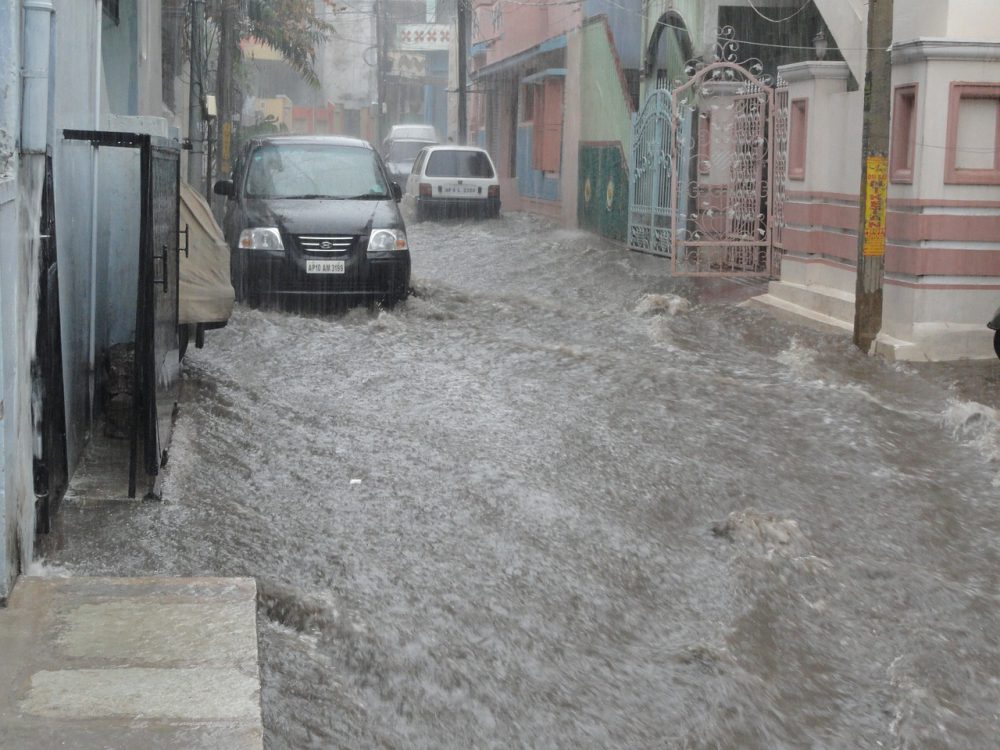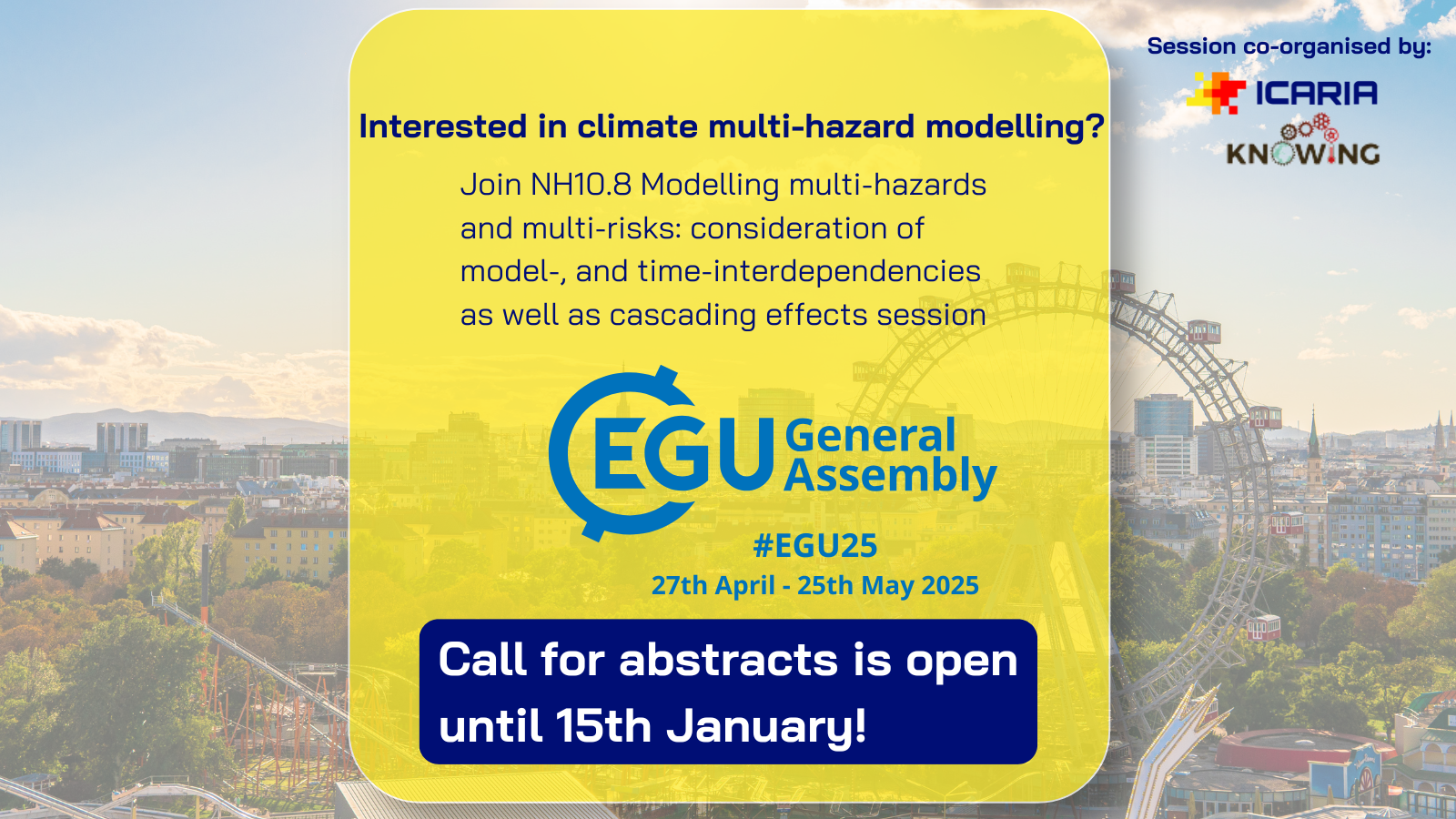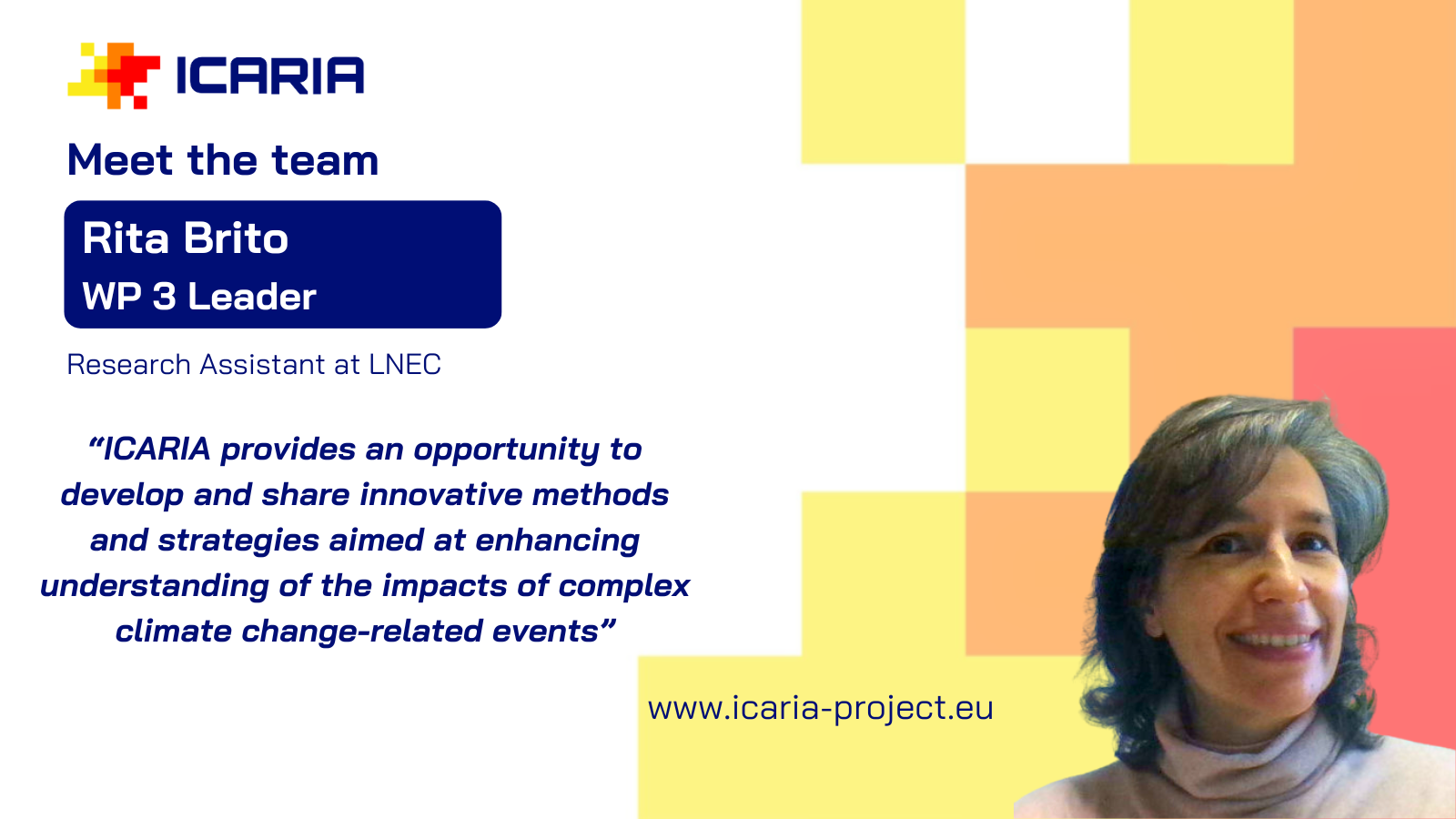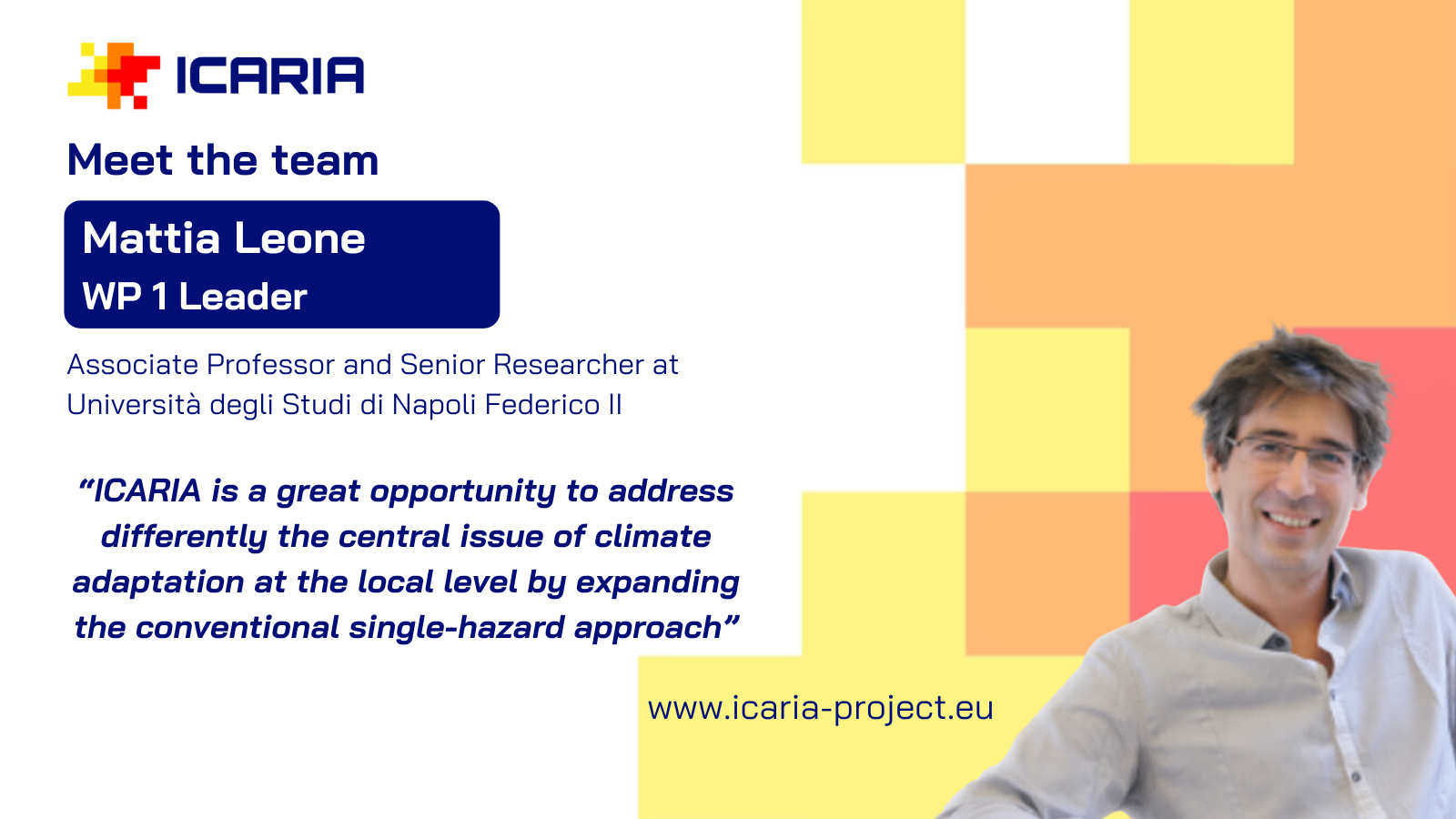
#2 | ICARIA: assessment of the first year of the project
By Àlex de la Cruz (AQUATEC)
In the current context of global climate change, the impacts associated with extreme weather events have risen over the last decades. This trend is expected to keep on growing in years to come. This situation has highlighted the high vulnerability of urban areas to this kind of situation.
Historically, the impact and risk assessment of climate extreme events have been developed under a “one at a time” scope, analysing each hazard individually. Nevertheless, it is presently recognized that there is a need to shift this scope to multi-hazard events, defined as the combination of multiple drivers and/or hazards that pose a risk to society, infrastructures, or the environment in a combined manner, which can pose a more severe and complex risk for its receptors.
In this context, ICARIA (Improving ClimAte Resilience of crItical Assets) aims at promoting the use of a comprehensive asset-level modelling framework to achieve a better understanding about the climate-related impacts caused by complex, compound, and cascading disasters and the possible risk reduction provided by suitable, sustainable, and cost-effective adaptation solutions.

One year of project
During the first 12 months, the consortium has focused its efforts in defining a solid methodological framework to support multi-hazard risk assessment of European regions. Within the project lifetime- it will be implemented in three case study regions: the Barcelona Metropolitan Area (Spain), the Salzburg Region (Austria) and the South Aegean Region (Greece). Such a framework is presented in the Deliverable 1.1 of the project.
In parallel, hazard and impact assessment methodologies have been gathered by expert parents in order to develop numeric models that in future steps of the project will enable a monetization of the impacts associated to multiple hazard events affecting the case studies. Furthermore, local downscaling of climatic parameters for different climate change scenarios have been achieved for each case study based on the IPCC Report VI.
Next steps
In the next months, ICARIA will also publish a novel Holistic Resilience Assessment tool that will support the evaluation of the capacity of services and critical assets to cope with the impact of extreme events.
By the end of the project, all the models and tools developed in ICARIA will be integrated in a Decision Support System (DSS) focused on helping regional administrations and risk owners to improve their climate planning policies
All the developments and work efforts are discussed with relevant external stakeholders of the three case studies that meet on a regular basis to share and evaluate the progress of the project in local Communities of Practice (CoP).
It is also work remaking that all the tools, models and methodologies developed in ICARIA are focused on maximising their exploitability in other regions beyond the scope of the project.
The ICARIA project is funded under Topic HORIZON-MISS-2021-CLIMA-02-03, which belongs to the Mission “Adaptation to climate change” of the research funding program Horizon Europe.
More news

ICARIA launches a call for abstracts on multi-hazards modelling for EGU 2025
ICARIA has recently launched a call for abstracts to join a session on multi-hazards modelling at the EGU General Assembly... View Article

Meet the team: Rita Brito
Rita Brito is Research Assistant at LNEC and the leader of Work Package 3-Impacts Evaluation and DSS (Decision Support System).... View Article

Meet the team: Mattia Leone
Mattia Leone is Associate Professor and Senior Researcher at Università degli Studi di Napoli Federico ll and the leader of... View Article

